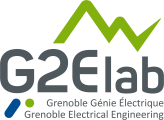Le jury sera composé de :
Mme Zita Maria ALMEIDA DO VALE, professeure, Université Polytechnique de Porto, rapporteur
M. Marc PETIT, professeur, Centrale Supélec, rapporteur
M. Georges KARINIOTAKIS, professeur, Université de Mines ParisTech, rapporteur
M. Carlo Alberto NUCCI, professeur, Université de Bologne, membre
Mme Trinidad CHARDIN-SEGUI, MEP Software CTO, Schneider Electric, membre
M. Pierre MALLET, directeur R&D et Innovation, Enedis, membre
M. Nouredine HADJSAID, professeur, Grenoble INP, membre
M. Christian SCHAEFFER, professeur, Grenoble INP, président
Abstract :
The current context of the energy transition adds an environmental and societal dimension to the planning problem: the power systems must not only be reliable and economical but must also integrate renewable energies, facilitate the development of new actors (local energy communities for example) and optimize their investments. It is in this context that the research I have been conducting for a little more than ten years at Grenoble Electrical Engineering laboratory is taking place: how to plan a robust distribution grid, under uncertainties, integrating distributed energy resources? To answer this question, I explored two research directions: the topological optimization of distribution grid architectures and the integration of non-wire alternatives in the long-term planning. The first research direction focusses on the development of topological optimization algorithms of distribution grids (architectures, technologies and operating modes) complying with a set of performance indicators (costs, reliability, penetration of renewable productions for example), in both rural and urban areas, and for expansion and green-field problems. The second research direction models the impact of flexibilities on investment decisions. The scientific barriers related to the high level of uncertainties and the scale of the problem (power curves and action of flexibility at a time step of a few minutes modelled over several years) required the use of probabilistic approaches (Monte Carlo and analytical) but also scale reduction (identification of seasonality effects using statistical criteria for example). As the distribution network is a system interconnected with the transmission grid and other systems (multi-energy, IT, economic and human), my future research will seek to model these interactions with the aim of systemic optimization. Solutions that break with historical choices will also be studied, such as bottom-up planning approaches and DC or AC/DC architectures. Finally, thanks to the increasing availability of measured and varied data, methods derived from artificial intelligence could enable updating historical planning assumptions and modelling some of the uncertainties.
Soutenance d'Habilitation à Diriger des Recherches de Marie-Cécile ALVAREZ-HERAULT intitulée
"Planification des réseaux électriques de distribution flexibles sous incertitudes"
En raison des restrictions dues à la Covid-19, la présentation sera présentée aussi en visio.
Voici le lien GotoMeeting pour la soutenance : https://global.gotomeeting.com/join/987159725
Code d'accès: 987-159-725
Lundi 5 juillet 2021 à 11h
Amphi Ampère
G2Elab - site GreEn-ER
21 avenue des Martyrs
38000 Grenoble
Accès Tram B, arrêt Marie-Louise Paris - CEA


